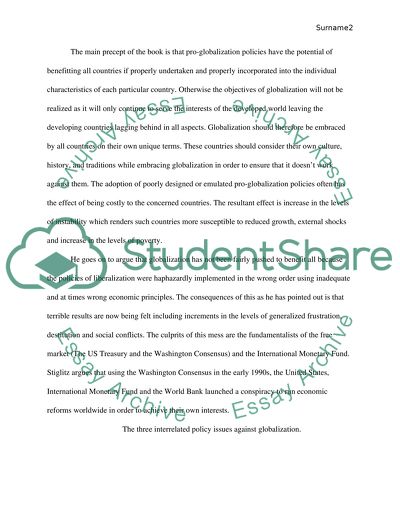Cite this document
(Globalization and its Discontents by Joseph E. Stiglitz Book Report/Review - 1, n.d.)
Globalization and its Discontents by Joseph E. Stiglitz Book Report/Review - 1. Retrieved from https://studentshare.org/macro-microeconomics/1585566-critical-book-review
Globalization and its Discontents by Joseph E. Stiglitz Book Report/Review - 1. Retrieved from https://studentshare.org/macro-microeconomics/1585566-critical-book-review
(Globalization and Its Discontents by Joseph E. Stiglitz Book Report/Review - 1)
Globalization and Its Discontents by Joseph E. Stiglitz Book Report/Review - 1. https://studentshare.org/macro-microeconomics/1585566-critical-book-review.
Globalization and Its Discontents by Joseph E. Stiglitz Book Report/Review - 1. https://studentshare.org/macro-microeconomics/1585566-critical-book-review.
“Globalization and Its Discontents by Joseph E. Stiglitz Book Report/Review - 1”, n.d. https://studentshare.org/macro-microeconomics/1585566-critical-book-review.


